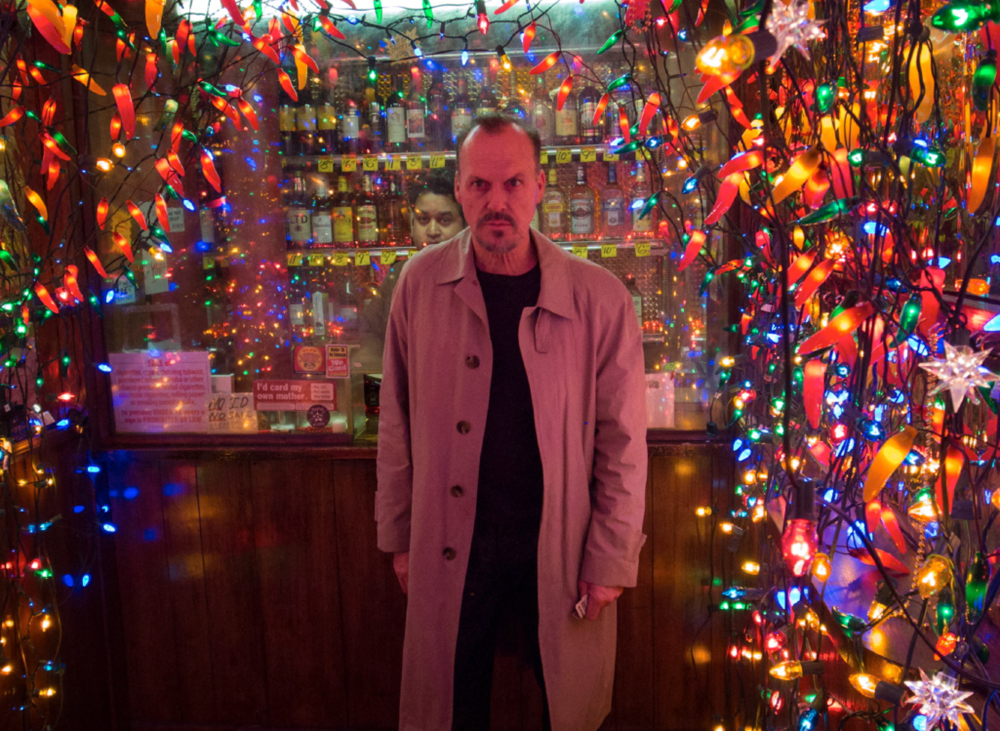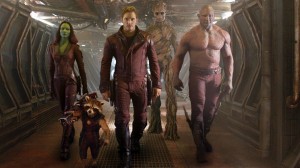
Birdman opens with a Raymond Carver poem, Late Fragment. The poem reads as follows:
And did you get what
you wanted from this life, even so?
I did.
And what did you want?
To call myself beloved, to feel myself
beloved on the earth.
It’s an apt choice for a film that’s meant to be entirely about one man’s struggle to feel loved by all those who surround him, be they critics or audience or co-stars in a play he’s mounting. In a way, it’s almost as though Alejandro González Iñárritu is making a movie about himself; albeit one without an ounce of self-awareness. With Birdman, he’s desperate to find something that will make audiences and critics alike adore him, even though he spends most of the movie poorly critiquing their very existence. The sad part is he’s likely to find exactly the kind of misplaced admiration he so desires with it.
Never did I believe there would come a day when I would long for the melodramatic misery-porn version of Iñárritu, whose attempts at bloated drama once left me frustrated while others cried their hearts out in the theater. Alas, the dark comedy edition of the filmmaker might just be worse. Michael Keaton stars as Riggan Thomson, an actor who once starred as “The Birdman” in a superhero flick that went on to have two sequels and a large fanbase. Nowadays, he’s living the life that nobody really wants: that of a struggling artist who is trying to mount his own adaptation of Raymond Carver’s What We Talk About When We Talk About Love. Like many other films about folks like this, he has to deal with a multitude of people seemingly against him, including but not limited to an obnoxious method actor (Edward Norton), actresses Lesley (Naomi Watts) and Laura (Andrea Riseborough), an anxious lawyer (Zach Galifianakis), and a recovering drug addict daughter/assistant (Emma Stone).
With each technical move Iñárritu makes, the character of Riggan Thomson and the film as a whole become less interesting and more cowardly. Every close-up, every fantasy, every bit of incessant drumming, it’s all meant to paint an image of a man on the edge of losing his mind (or long past the edge). No one can fault the filmmaker for trying as hard as he (and his three male co-writers) can to achieve this. What Iñárritu and Co. don’t seem to grasp is that even with unbalanced and barely sympathetic characters, there needs to be a worthy narrative accompanying all the bullshit he spouts, does, and thinks about to make that all even remotely interesting and/or acceptable. It’s the kind of element that the film itself rarely addresses. Instead, when it does, it results in great scenes. One featuring Stone’s character tearing him apart for being so ignorant and self-centered about what the world really wants, reminding him that he confuses love for admiration, could easily be considered its best overall.
In fact, every problematic feature that one can bring up about the film can be immediately countered by the sheer comment: “Well, he’s an unstable, unappealing, and unreliable narrator who is only interested in having folks love him no matter what he does.” It’s a crutch that defenders of the film will no doubt become ever-reliant on. The problem with that, however, is that Iñárritu places so many scenes outside of his head-space that it’s nearly impossible to claim that Riggan dreamt up the whole dang thing or that the entire film is through his perspective, considering how many scenes would have been out of his reach entirely.
Here’s a couple of moments that are particularly unnecessary and serve absolutely no purpose but to add scandal and side-plot to a film that’s too self-centered to care about its supporting actors or what humanity is really like (very much like Biutiful was years ago). First off, we’ve got a scene between Naomi Watts and Andrea Riseborough, in which the two women share an unexpected kiss, comes moments after Watts’ character is sexually assaulted on stage. She’s understandably left in an incredibly vulnerable state after the film makes a joke out of the assault, toting Edward Norton’s faux-boner in thermal underwear as something sure to draw in big laughs, and then comes the comforting touch and the kiss that feels oh-so good to her. It’s nothing more than a passing indulgence of the male gaze, and it’s the kind of move I’d expect from an amateur and not a man who regards himself so highly.
In another scene, Mike gets introduced by complimenting Emma Stone’s ass. He then strips naked in front of her as though it’s no problem. To no one’s surprise: she ends up having sex with him eventually, even though he treats her rather poorly. I’d rather not even talk about Riseborough’s introduction as a hyper-sexualized chick who claims she’s pregnant. Sure, folks will say that it’s just “misogyny in the industry” but, again, it’s a cheap crutch, and an even cheaper depiction of a women who dealt with drug addiction. Birdman says every woman is vulnerable, sexually repressed, sexually obsessed, and/or in existence solely to fuel Riggan’s breakdown and rise to the stage.
Even the New York Times critic (who is presented as a bitter old hag dead set on hating Riggan for being a Hollywood actor turned stage director) exists for that reason: to become a monster hellbent on destroying the play before even witnessing it. Watching the scenes that unfold between her and the actor are almost as embarrassing as reading this next-level-awful three-page Zen Pencils comic titled “The Artist-Troll War”, if only because it’s the same kind of incessant whining about art criticism not truly understanding art and the artist.
These actors – each and every one of them really – attempt to do what they can with the overbearing, but barely existent, material they’re handed. Everyone gets at least the smallest moment to chew the scenery, with the spotlight nearly always being on Keaton. But everyone, including DP Emmanuel Lubezki, gets the short end of the stick from working with Iñárritu’s less than experienced hand. It’s a shame to have to shoot down a filmmaker for attempting something as ambitious as a film that supposedly boasts the look and feel of one long take. For one, it’s not a claim it can rightfully make (as it betrays its own attempt quite some time before the film ends).
Even dismissing that, it’s arguably some of Lubezki’s blandest material since Y tu mamá también. Birdman never really takes any risks in the presentation, sticking to steadicam shots that follow characters through long, claustrophobic halls and coming up close to people’s faces for the sake of allowing all the behind-the-scenes action to happen. This isn’t to say that he doesn’t occasionally stop to smell the roses and deliver some good ol’ gorgeous imagery, but it’s hard to find excitement in watching a great cinematographer restrain himself for the sake of maintaining an altogether rather boring series of tracking shots.
While Alejandro González Iñárritu’s begs for praise are sure to be answered by many, I remain unimpressed with Birdman. This is a film that features Spider-Man, Transformers robots, and a bunch of Statues of Liberty dancing on a Broadway stage together, accompanied by senseless drumming and the falling of a meteor likely meant to symbolize the way humanity needs to be demolished for creating such a desensitized world that doesn’t understand or care about real artists. Or maybe that’s not what it means. Maybe it means nothing. Maybe it’s all a dream. Maybe I’m just a critic looking for a buzzword or some comments. But maybe Alejandro González Iñárritu simply made another bad film, and that’s a reality I’m comfortable with.
—
Directed by Alejandro González Iñárritu; written by Alejandro González Iñárritu, Nicolás Giacobone, Alexander Dinelaris & Armando Bo; starring Michael Keaton, Emma Stone, Zach Galifianakis, Naomi Watts, Andrea Riseborough, Edward Norton, Amy Ryan & Merrit Wever; 119 minutes.
Birdman or (The Unexpected Virtue of Ignorance) is currently experiencing a limited theatrical release. The film opens in Miami on Friday, October 31st.



 Derek
Derek
 Isabelle
Isabelle